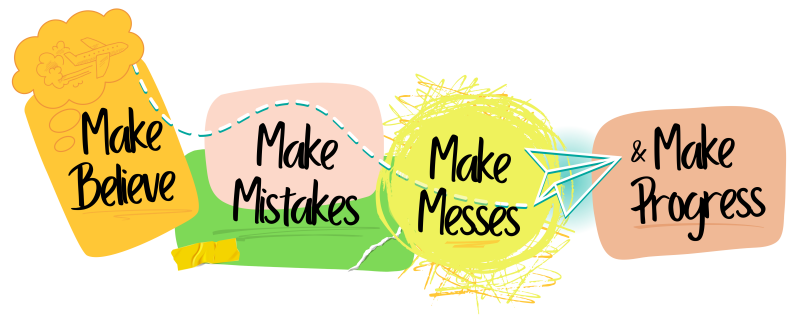Frequently asked questions

What ages is play therapy suitable for?
Play therapy is most commonly suitable for children aged 3 to 12, and can be adapted for teenagers (and even adults!) depending on their individual needs.
Play therapy is a neurodiversity affirming therapy. It meets young people where they are and focuses on helping neurodiverse children, teens, and families feel supported, resilient, and capable.
At Red Deer Play Therapy, we see children and teens between the ages of 2 and 17.
Does my child need a referral?
No. You don’t need a referral to access our services. Families are welcome to reach out and book directly. If you have questions or would like help deciding whether our services are a good fit, we’re happy to help.
How do I know if my child needs help?
Childhood can be stressful. If these, or any other patterns worry you, it may be time to talk about mental health with your child:
- Sudden or severe mood or personality changes, including regressions
- Social isolation or difficulty with peer relationships
- Extreme and/or unusual feelings of sadness, anger, fear, irritability or anxiety
- Picking their skin or hair, or self-injurious behaviours (self-harm)
- Physical symptoms (Complaining about headaches or stomachaches, particularly when associated with going to school or social events)
- Exposure to trauma
- Exposure to abuse
- Life changes, stressful events, or loss
- Talking about suicide, or harming others
To support families in understanding possible avenues to support their children, we offer a free, no-obligation 15 minute phone consultation. Contact us to set up your free consultation.
What should I expect for my child's first appointment?
After our initial contact, parents or guardians will complete intake paperwork.
Then, the child psychologist will meet with you for an Intake/Consultation session. During this visit, you will have the opportunity to share your concerns, ask questions about the therapy process, learn about your child's rights, and work alongside the psychologist to develop a therapeutic plan for your child.
You'll be invited to join your child in their first session. Together, you'll be introduced to the psychologist and the play therapy room, where we'll go over their rights as a group. The priority for this session is creating a safe space where your child can feel comfortable within the play therapy room and with the therapist.
What are your areas of focus?
We see young people across various spectrums of neurodiversity. Children and teens come to therapy for a variety of reasons, including:
- Abuse
- Adoption/Foster/Kinship
- Anxiety
- Anger management
- Attachment
- Attention and focus
- Behavioural concerns
- Confidence and self esteem
- Coping Skills
- Depression
- Emotional regulation
- Family transitions (including separation and divorce)
- Grief and loss
- Identity Development
- LGBTQIA2S+ issues
- Nightmares/Trouble sleeping
- Relationships
- Self harm/ self injury
- Social skill development
- Suicide Ideation (Thoughts of suicide)
- Trauma
Do you have any experience working with autistic children?
Absolutely. Our therapists have experience working with both autistic and allistic children.
How many sessions are needed?
The number of therapy sessions needed is dependent upon presenting concerns. The psychologist will work with you to identify goals and develop a therapy plan. Parents and guardians are seen as integral members of the child's team, and you will be involved throughout the therapy process.
Where are you located?
We are located at 106- 4711 51 Avenue, Red Deer.
(The H&R Block, Dreamstart Daycare Building, across from Original Joe's).
What are your hours?
We typically provide services between 9:30am and 6:00pm, Tuesday through Saturday. We are closed Sundays and Mondays.
Where can I park?
The north lot- where the daycare outdoor space is located-is currently unavailable for parking. There is ample paid street and lot parking available around the building. Please talk to our team if parking is a barrier.
Do you offer assessments?
No, the psychologist does not offer assessment or diagnostic services at this time, but provides therapeutic supports to individuals across the spectrums of neurodiversity.
If you're interested in assessment, we can support you in this process through making a referral.
What are the fees?
Our service rates are aligned with professional standards across Alberta, and guided by the recommended rates from the Psychologists’ Association of Alberta (PAA).
- Registered Psychologist Rate: $225/session (may be fully or partially covered by insurance and extended health benefits)
- Masters Level Student Therapist Rate: $50/session (Note: Student therapists are NOT licensed and are NOT covered by insurance/extended health benefits.)
Red Deer Play Therapy is pleased to offer complimentary direct billing to most insurance providers. Hayley is an approved provider for Indigenous individuals covered under the Non-Insured Health Benefit Plan (NIHB).
If cost is a barrier to accessing therapy, please let us know. We may be able to explore sliding scale options, when available, or help connect you with a more suitable provider.
My question wasn't answered
Contact us at 403-396-7529 or hello@reddeerplaytherapy.com and our team will be happy to answer any questions.


